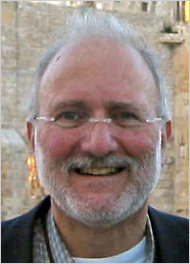Cuba Gives 15-Year Prison Term to American
/
Jesse Jackson makes plea to Cuba to free Gross [MORE]
MEXICO CITY — An American contractor who United States officials said went to Cuba to deliver communication equipment to religious groups was sentenced Saturday to 15 years in prison by a Cuban court, the latest turn in a case that could trip up thawing relations between the countries.
The United States has portrayed the contractor, Alan P. Gross, 61, as a suburban Washington humanitarian who was merely bringing satellite telephone equipment, which could be used to bypass heavy Internet restrictions in Cuba, to the small community of Cuban Jews when he was detained in December 2009.
 But Cuban authorities said American officials, who eventually acknowledged that Mr. Gross lacked a proper visa and was working on a secretive United States Agency for International Development, or Usaid, program to expand Internet access, must have known such equipment was barred in Cuba without a permit.
But Cuban authorities said American officials, who eventually acknowledged that Mr. Gross lacked a proper visa and was working on a secretive United States Agency for International Development, or Usaid, program to expand Internet access, must have known such equipment was barred in Cuba without a permit.
They accused Mr. Gross of being a spy, tried him and convicted him of taking part in “a subversive project of the U.S. government that aimed to destroy the revolution through the use of communications systems out of the control of authorities.”
The Obama administration has called Mr. Gross’s case a sticking point in improving relations with Cuba.
“We deplore this ruling,” said Philip J. Crowley, the State Department spokesman. “Alan Gross is a dedicated international development worker who has devoted his life to helping people in more than 50 countries. He was in Cuba to help the Cuban people connect with the rest of the world.”
Tommy Vietor, a spokesman for the National Security Council, issued a statement Saturday saying the sentence “adds another injustice to Alan Gross’s ordeal. He has already spent too many days in detention and should not spend one more.”
Analysts had predicted the conviction and sentencing. But they say it is likely that Mr. Gross, who suffers from diabetes and has lost 90 pounds in detention and whose 26-year-old daughter has received cancer treatment, would be freed on humanitarian grounds.
Cuba, this thinking goes, wanted to make a statement about what it considered the intrusion on their sovereignty of the Usaid programs. The Associated Press reported that Cuban television last week broadcast the first part of a documentary on Usaid, accusing it of waging a cyberwar against the country.
Still, given that President Obama has relaxed some travel restrictions to the island and limits on sending money there while Mr. Gross was being detained, and that Cuba has released a number of dissidents, it was unclear whether the Gross case would have any long-term impact.
“The judicial process had to conclude to open the door for a political solution,” said Philip Peters of the Lexington Institute, a nonpartisan policy group in Arlington, Va., who has been following the case.
Mr. Gross’s case became a cause célèbre among Jewish groups in the United States and for a range of religious leaders, including the Rev. Jesse Jackson, who offered to mediate the dispute with President Raúl Castro.
Mr. Gross’s American lawyer, Peter J. Kahn, said in a statement Saturday that Mr. Gross would explore an appeal.
“Having already served a 15-month sentence in a Cuban prison, Alan and his family have paid an enormous personal price in the longstanding political feud between Cuba and the United States,” Mr. Kahn said. “We will continue to work with Alan’s Cuban attorney in exploring any and all options available to him, including the possibility of an appeal.”
A statement from the Cuban judges on the Cuban News Agency Web site said that during the trial, Mr. Gross “had recognized having been used and manipulated by the Usaid” through its contractor, Development Alternatives Inc., of Bethesda, Md., for which Mr. Gross worked.
His relatives and friends have said he has traveled the world as an international development worker, and a company he formed in 2001, Joint Business Development Center, said it had increased Internet connections in several countries.
Mr. Gross had visited Cuba several times in the months before his arrest.
American officials have said Usaid programs in Cuba, a $20 million initiative, were being reworked to emphasize educational exchanges and small-business growth rather than efforts that could be perceived as directly weakening the government.












































































































































































































































































